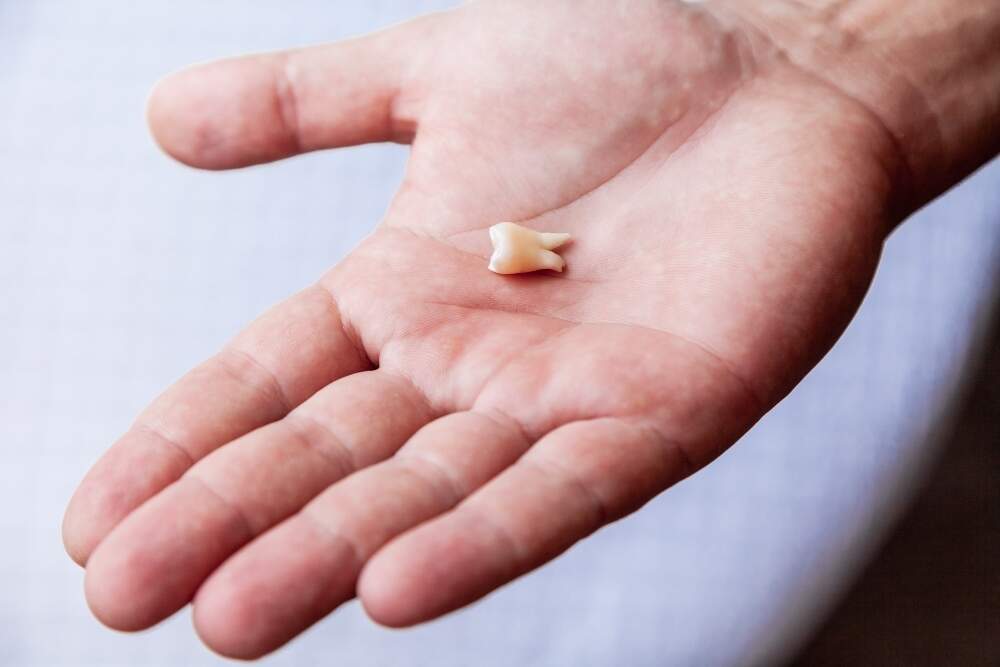If you've noticed a loose tooth, it's important you don't ignore it. Scheduling a dental appointment is your first step, but understanding the journey ahead can make the process less intimidating. From the initial assessment and diagnosis to exploring professional treatment options and adopting rigorous home care routines, each phase is tailored to make sure your oral health is back on track. But what if there's more to it? Imagine uncovering preventive measures that could save you from future distress, or learning about immediate help signals that demand urgent attention. Let's explore how taking action now can safeguard your smile for years to come.
Key Takeaways
- Schedule a dental appointment for a thorough examination and diagnosis of the loose tooth.
- Discuss potential causes with your dentist, including gum disease and tooth decay, to target treatment effectively.
- Explore professional treatment options such as deep cleaning, splinting, or root canal, based on the dentist's recommendation.
- Follow your dentist's home care instructions rigorously, including brushing twice a day and flossing daily.
- Schedule regular check-ups for maintenance and to prevent further issues, prioritizing oral hygiene.
Schedule a Dental Appointment
As soon as you notice your tooth is loose, it's essential to call your dentist and book an appointment right away. You're stepping into the world of proactive dental care, where your commitment to oral hygiene and prevention can make a world of difference. A loose tooth doesn't just mean an unexpected visit to the dentist; it's an opportunity to explore the professional treatment options available to you.
When you make that dental appointment, you're not just ticking a box for loose tooth treatment; you're opening the door to a thorough evaluation of your oral health. Your dentist is your ally in this journey, ready to guide you through the maze of potential treatments, from the straightforward to the advanced. They'll equip you with the knowledge and tools necessary for not just recovery, but strong oral health prevention strategies going forward.
Let's face it, no one dreams of having a loose tooth, but with the right approach, this little hiccup can be transformed into a learning experience. It's a reminder that oral hygiene isn't just about avoiding cavities; it's about maintaining the foundation for a healthy, confident smile. So, take this step seriously, and let's start your journey to dental mastery with that all-important dental appointment.
Assessment and Diagnosis
Upon your visit, the dentist will conduct a thorough examination of your mouth to pinpoint the cause of your tooth's looseness. This dental examination is your first step towards a solution, where the dentist becomes a detective in your mouth's mystery.
| Stage | Tool | Purpose |
|---|---|---|
| Initial Observation | Visual Exam | Identify visible signs of looseness and assess oral health. |
| Under the Surface | X-rays | Uncover hidden issues affecting the tooth's stability. |
| Formulating a Plan | Diagnostic Results | Create a customized treatment plan based on findings. |
X-rays play an essential role in revealing what can't be seen with the naked eye, from hidden decay to jawbone issues contributing to your loose tooth. These insights are invaluable, enabling your dentist to propose a treatment plan tailored to your specific needs.
Understanding the causes behind a loose tooth is key to addressing it effectively. But remember, we're not diving into those causes just yet. Instead, we're focusing on how a detailed assessment paves the way for professional treatment options. This stage sets the foundation for a successful repair, guiding you towards the best course of action to secure your smile's future.
Discussing Causes
Understanding the reasons behind your loose tooth is essential for an effective treatment plan. Delving into the causes, you'll find that gum disease and tooth decay are frequent culprits. These issues don't just sneak up overnight; they're often the result of prolonged neglect or inadequate oral hygiene. Imagine gum disease as the unwelcome guest at a party, gradually undermining the foundation (your gums) that supports your teeth. Similarly, tooth decay is like termites silently gnawing away at the structure (your tooth), leading to instability—hence, loose teeth.
Now, it's not all doom and gloom. Understanding these causes empowers you to take control. Regular dental check-ups and a robust oral hygiene routine are your best defense against these stealthy invaders. Consider this: just as you wouldn't let your house fall into disrepair, the same should go for your teeth. Brushing, flossing, and regular dental cleanings aren't just chores; they're preventative measures to keep your smile intact.
Professional Treatment Options
When dealing with a loose tooth, it's important to contemplate the professional treatment options your dentist may suggest. If loose teeth are caused by gum disease, treatment may involve a deep cleaning to remove the offenders hiding beneath your gum line. Not exactly a spa day for your mouth, but it's vital for kicking gum disease to the curb.
Your dental care professional might also discuss other treatment options like splinting, which is basically giving your tooth a buddy to lean on, making sure it doesn't feel too wobbly. If your tooth has gone rogue due to injury, a more direct approach, like a root canal, might be on the agenda to address any internal damage. And in scenarios where the tooth can't be saved, they might suggest an extraction followed by a replacement option that best suits your smile.
Preventive measures are also part of the conversation, ensuring you're well-equipped with knowledge and strategies to prevent future dental dramas. It's all about providing you with the tools and treatments to maintain not just the tooth in question, but your overall oral health. Your dentist's goal is to guarantee your smile is both healthy and happy, minus any loose ends.
Home Care and Follow-Up
After your professional treatment, it's crucial to follow your dentist's care instructions closely to promote proper healing and prevent future issues. This isn't just about ticking off a checklist; it's about mastering your oral hygiene game. Home care is your new best friend, so cozy up with your toothbrush and floss. They're more than just tools; they're your allies in maintaining that sparkling smile.
Remember, brushing twice a day and flossing daily isn't just advice; it's the golden rule of oral care. But don't stop there. Regular check-ups are your checkpoints to make sure everything's on track. Think of your dentist as your coach, guiding you through to victory against dental dilemmas.
Home care is more than a routine; it's a commitment to your health. It's the silent guardian of your smile, working behind the scenes to keep threats at bay. And while prevention might be the next chapter, consider home care and regular check-ups as your sneak peek into a future of unwavering oral health.
Prevention
Preventive measures can greatly reduce your risk of experiencing another loose tooth. Mastering the art of prevention involves a blend of discipline, knowledge, and regular habits that shield your oral health from potential threats. Here's how you can take control:
- Prioritize Oral Hygiene: Brush twice a day, floss daily, and don't skip the mouthwash. This trio is your first line of defense against the enemies of your teeth, preventing further damage and keeping gum disease at bay.
- Wear Protective Gear: If you're into sports or activities that put your mouth at risk, don't skimp on protective gear. A mouthguard can be the difference between a winning smile and an emergency visit to the dentist.
- Schedule Regular Check-Ups: Even if you're the superhero of home care, regular check-ups are vital. Your dentist is the sidekick you didn't know you needed, catching potential problems before they escalate.
Immediate Help Signals
While preventive measures can greatly reduce the risk of a loose tooth, it's important to know the signs that indicate you should seek immediate dental care. If you're wiggling a tooth with your tongue and find it moves more than your favorite dance move, it's time to call in the experts. A loose tooth doesn't just threaten your smile's charm; it's a red flag for your oral health needing urgent professional dental treatment.
Immediate help signals go beyond just a tooth that's got too much freedom. Are you experiencing discomfort while chewing or an ache that won't quit? These are your mouth's SOS signals. Swelling, severe pain, or any sign of infection (think fever, a taste in your mouth that's worse than your aunt's casserole, or pus) are not just inconveniences. They're urgent reasons to seek dental care pronto.
Frequently Asked Questions
Can Loose Teeth Tighten Back up Naturally?
You might wonder if your wobbly tooth can firm up on its own. In some minor cases, especially with kids, a loose tooth can tighten back up. However, for adults, it's a different story. If you're noticing some wiggle, it's probably not going to fix itself. Your best bet? Get to your dentist pronto. They'll figure out what's going on and how to save that shaky tooth of yours.
How Long Does a Loose Tooth Take to Heal?
Steering through the waters of a loose tooth can feel like maneuvering through a storm, but fear not, mastery awaits with the right approach. The healing timeline varies, often depending on the cause and effectiveness of treatment. Typically, it may take several weeks to a few months for a loose tooth to stabilize, assuming you're following your dentist's tailored advice to the letter and maintaining impeccable oral hygiene. Patience and diligence are your best allies here.
Are There Any Natural Remedies for a Loose Tooth?
While there's a buzz around natural remedies for a loose tooth, it's important to tread carefully. Some swear by gentle rinsing with salt water to reduce inflammation or applying clove oil for temporary pain relief. However, these home hacks can't replace professional dental care. They might offer a momentary sigh of relief, but if you've got a wobbly tooth, a dentist's chair is where you need to be, pronto.
Can a Loose Tooth Affect Overall Health?
Absolutely, a loose tooth can impact your overall health. Imagine this: nearly 20% of adults experience at least one loose tooth in their lifetime, often hinting at underlying issues like gum disease, which can affect heart health if ignored. You're not just dealing with a dental nuisance; it's a wake-up call for a holistic health check. Don't let a wobbly tooth shake up your well-being; see a dentist to get to the root of the problem.
Is It Safe to Wiggle a Loose Tooth?
Wiggling a loose tooth might seem harmless, but it's risky business. While it's tempting to test its stability, you're better off not playing dentist. Fiddling with it can actually worsen the situation, leading to potential damage or infection. The smart move? Leave it be and let a professional take a look. They've got the tools and know-how to safely address the issue without turning a minor problem into a major one.
Conclusion
In the journey to tackle that wobbly tooth, you've navigated through dentist appointments like a champion, deciphered the mysteries behind its looseness, and explored the treasure trove of treatment options. Now armed with the golden shield of home care and the sword of follow-up visits, you're more than ready to conquer any dental dragons. Remember, prevention is your castle's strongest wall, and recognizing when to signal the cavalry for immediate help is your ace in the hole. Smile on, brave warrior, your oral kingdom awaits its hero!

